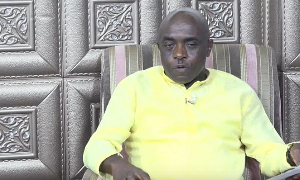Gross domestic product grew 3.8% in the three months through December from a year earlier, compared with a revised 2.2% in the prior quarter, Government Statistician Samuel Kobina Annim told reporters in the capital, Accra, on Wednesday.
The cedi lost 0.1% to trade at 13 per dollar at 11:58 a.m. in Accra, the capital. Ghana bonds maturing in 2032 traded almost unchanged at 48.93 cents on the dollar.
The industry sector expanded an annual 1.6% in the fourth quarter after contracting a revised 2.5% in the prior three months. Growth in agriculture and the services sectors accelerated to 4.5% and 5.1% respectively, compared with a revised 4.3% and 5% in the third quarter.
While the economy of the world’s second-biggest cocoa producer grew at a faster pace in the fourth quarter, it had its worst full-year performance since the coronavirus pandemic. It expanded 2.9% last year from a revised 3.8% in 2022.
The data is likely to be used by the opposition to attack the ruling New Patriotic Party’s handling of the economy ahead of Dec.7 elections.
Growth last year was hampered by reduced government spending to rein in debt under the terms of a $3 billion International Monetary Fund bailout program, surging living costs and rising interest rates. Inflation averaged 40% in 2023 and borrowing costs stood at a record high of 30% at the end of the year.
Uncertainty ahead of the election, an anti-LGBTQ bill, which could jeopardize Ghana’s access to vital international funding if it becomes law, reduced cocoa output due to heavy rains and debt restructuring delays could weigh on growth this year.
Ghana announced a moratorium on its foreign obligations in December 2022, as it grappled with the aftermath of the pandemic and the shock to prices caused by Russia’s invasion of Ukraine. It has completed a domestic bond revamp and reached an agreement in principle with bilateral lenders in January to rework $5.4 billion of loans. It is still negotiating with eurobond holders who are owed $13 billion.
The Finance Ministry is forecasting economic growth of 2.8% this year and the IMF 2.7%.
Business News of Wednesday, 20 March 2024
Source: bloomberg.com

















